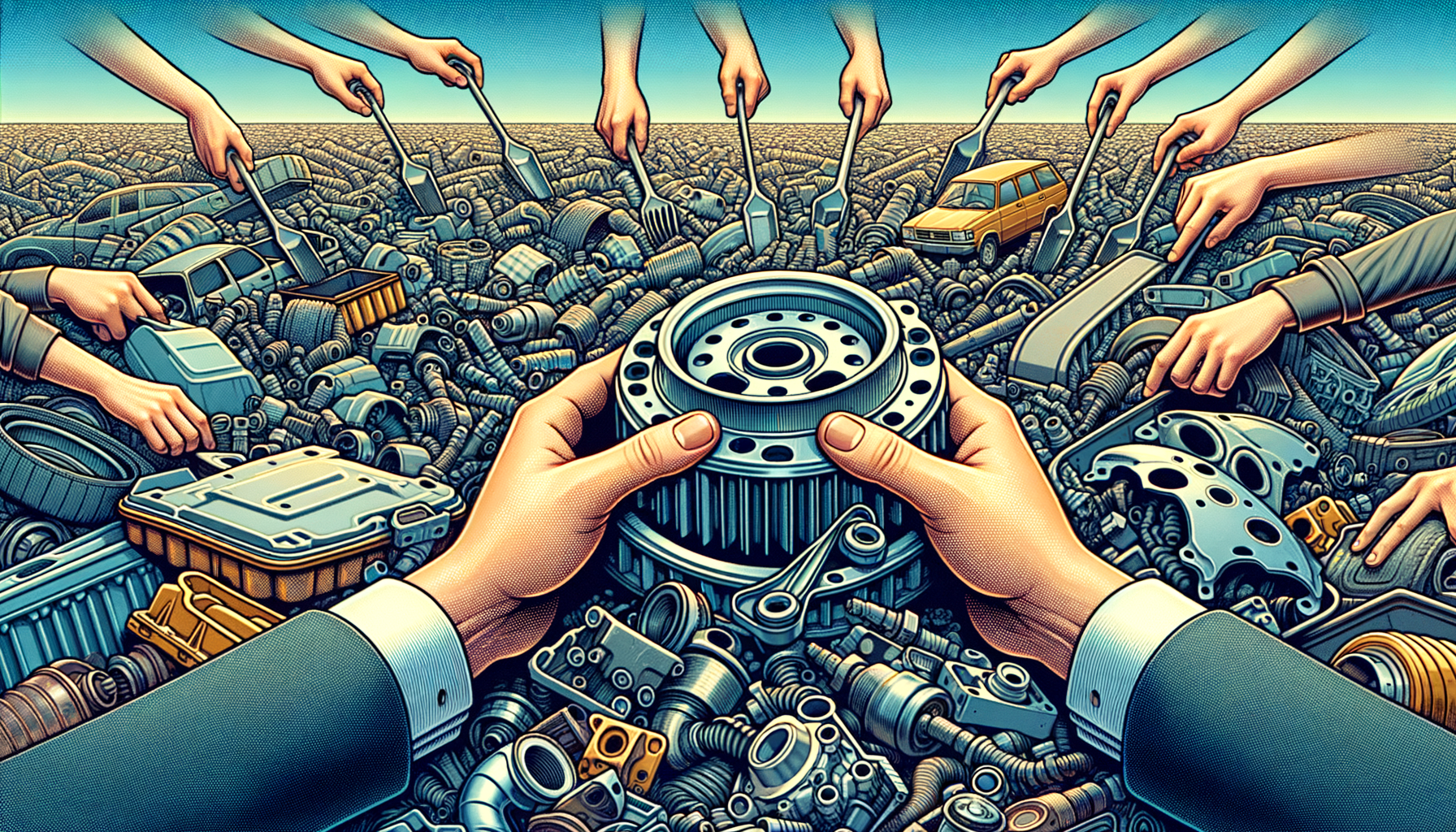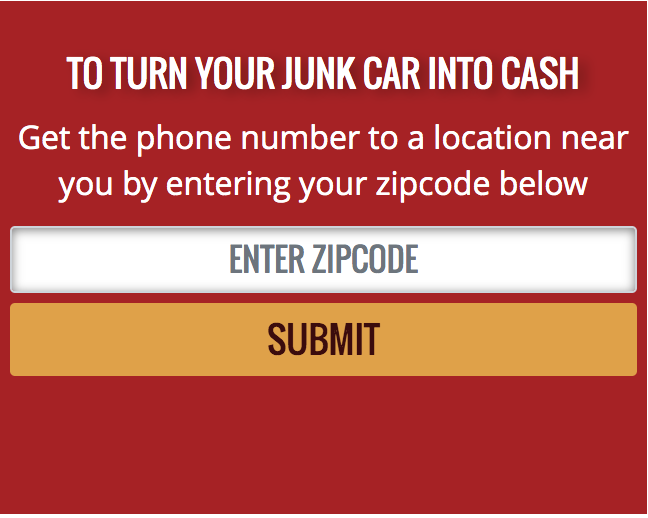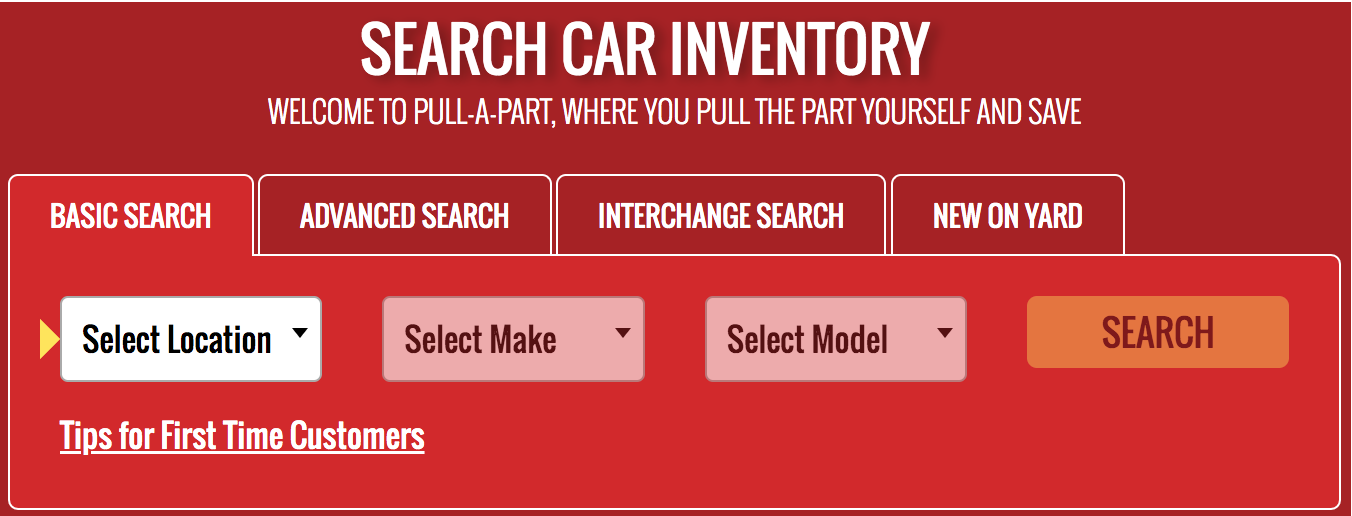The Life Cycle of a Junk Car: From Driveway to Recycling
Find a Local Junkyard
ALABAMA
ARIZONA
COLORADO
FLORIDA
GEORGIA
INDIANA
KENTUCKY
LOUISIANA
MISSISSIPPI
NEW MEXICO
NORTH CAROLINA
OHIO
PENNSYLVANIA
SOUTH CAROLINA
TENNESSEE
TEXAS
We've all seen them—a rusty old junk car sitting idle, slowly becoming part of the neighborhood landscape. Maybe you've got one sitting right now in your own driveway, quietly gathering dust, weeds, or the occasional neighborhood cat. But have you ever stopped to truly consider what it’s costing you by letting it linger? It's more than just an eyesore; that forgotten car can silently impact your home's curb appeal, value, and even pose environmental hazards. Luckily, there's a better alternative. In this post, we'll shed light on exactly what happens to junk cars from the moment they're removed from your property to the surprising ways they're recycled and repurposed. Grab a cup of coffee, sit back, and discover the hidden life cycle of your junk car—trust me, you'll never look at that rusty vehicle the same way again.
Summary
This post clearly reveals how recycling your junk car benefits your finances, home value, and environment, making your decision easy and rewarding.
- Junk cars left idle can lower property values and attract pests.
- Letting old vehicles sit unused risks harmful environmental impacts through leaking fluids.
- Multiple junk car removal options exist: private selling, donation, or professional recycling.
- Professional recycling services streamline removal, saving you time and hassle.
- Vehicle recycling safely removes hazardous materials, greatly benefiting the environment.
- Recycling your junk car provides financial incentives and boosts your home's appeal.
- Choosing responsible recycling is beneficial for you, your community, and the planet.
The Hidden Costs of Letting Your Junk Car Sit Idle
Most of us believe that once a vehicle stops running, it quickly becomes a harmless—and perhaps forgettable—lawn ornament. Unfortunately, the reality couldn't be further from this assumption. Leaving an old junk car to rest idly on your property comes with a host of hidden costs and risks you might not have considered, from diminishing property value and aesthetic appeal to creating environmental concerns.First, it's important to recognize the impact an idle junk vehicle can have on your home's value and curb appeal. Even if you keep your lawn manicured and home well-maintained, having a neglected, rusty vehicle prominently displayed can send the wrong message to neighbors and potential home buyers or renters. Studies have shown that the presence of deteriorating vehicles and general neglect can decrease perceptions of property desirability and negatively affect surrounding home values. Think of it this way—wouldn't you reconsider investing in a property where the neighbors have rusty, overgrown automobiles sitting out front? In short, keeping a junk car perpetually parked in your yard can cost you financially simply by lowering the visual appeal and desirability of your home as an asset.
Beyond aesthetics, there are practical and environmental considerations as well. Abandoned vehicles often become breeding grounds for rodents and insects. Mice, rats, and other pests find these decaying vehicles ideal for nesting, potentially increasing health risks to your family and your community. Stagnant water pools in abandoned vehicles also attract mosquitoes, which can become more than just a nuisance—they can carry diseases and increase risks of insect-borne illnesses. Aside from pest infestations, deteriorating junk cars leak harmful fluids, such as motor oil, transmission fluid, coolant, and even battery acids. These toxic substances slowly seep into the ground, contaminating your soil and potentially impacting local groundwater sources. Over time, allowing your junk car to remain unchecked can turn your yard into an environmental hazard.
Finally, beyond neighborhood appearances and health concerns, consider the possibility of fines or legal complications that accompany leaving an idle vehicle parked indefinitely. Many cities and HOAs have strict ordinances designed to curb property neglect, and these codes often include limits on keeping discarded or non-operational vehicles visible or uncovered. Ignoring these ordinances could result in fines, ticketing, or even legal action, creating extra expense and headaches for homeowners.The good news is these consequences are entirely preventable. By proactively addressing the presence of a junk vehicle, whether through recycling, selling, or donating, you can reclaim precious property space and value, avoid potential health and environmental hazards, and eliminate the hidden costs associated with leaving a junk car untouched in your driveway.
From Selling to Recycling: Exploring Your Best Junk Car Removal Options
When it's finally time to say goodbye to the junk car that's been sitting in your driveway, you'll discover there are several viable removal options at your fingertips. Each has its own set of advantages and potential downsides, depending on your priorities—whether that's quick convenience, financial return, or contributing positively to your community.
One popular approach is selling directly to private buyers or car enthusiasts who may see value where you don't. Platforms like Craigslist, Marketplace, or specialized car forums make it relatively easy to connect with buyers looking specifically for junk, project, or spare-part vehicles. While a private sale can occasionally yield a respectable sum, it often involves negotiating, fielding numerous inquiries, and managing meetings and potential no-shows—scenarios demanding patience and caution.Alternatively, car donation programs present another outlet that's both charitable and straightforward. By donating your vehicle to a nonprofit or charity, you can typically avoid the hassle of direct selling and even secure tax benefits. This approach not only simplifies the removal process but also lets you support meaningful causes in your community. However, donations might not always provide direct financial compensation upfront, making this option most appealing to those driven by altruistic motives.
Perhaps the most practical, efficient approach is partnering directly with a professional junk car removal service. Local businesses specializing in junk removal streamline the entire process—from giving you a simple, clear quote and conveniently removing your car for free or minimal cost, to ensuring its proper disposal and responsible recycling. Selecting a reputable service ensures your vehicle is handled professionally and sustainably, making this option ideal if you're looking to quickly restore your property's appearance and do what's best environmentally without unnecessary hassles. Ultimately, your best option depends on your unique circumstances and what's most valuable to you—time, convenience, financial return, or community involvement.
Inside the Recycling Process: What Really Happens After Your Junk Car is Removed?
Once your junk car is picked up from your driveway by a professional removal service, you might wonder—what exactly happens next? The recycling process of a junk vehicle is fascinating, environmentally responsible, and more thorough than many realize. It’s not just about crushing an old car into scrap metal; it's a well-orchestrated series of steps designed to maximize sustainability and minimize waste.Initially, your vehicle arrives at a certified recycling facility, where experts carefully inspect and document its condition. The first major step is draining all hazardous fluids—such as oil, transmission fluid, brake fluid, antifreeze, and gasoline—which are safely extracted, contained, and recycled or disposed of according to strict environmental regulations. Proper handling of these chemicals greatly reduces environmental contamination risks, protecting soil and groundwater quality for years to come.
Once hazardous fluids have been dealt with, technicians begin dismantling the car to salvage and recover usable parts. Valuable vehicle components like engines, transmissions, alternators, catalytic converters, and even tires, in some cases, are evaluated, refurbished if possible, and resold for reuse. This not only cuts down environmental waste significantly, but also provides affordable replacement parts for people maintaining their older vehicles, supporting the broader automotive supply chain.In the final stage, the car's remaining body and frame are crushed and processed for metal recycling, using powerful industrial shredders. This shredded metal is carefully sorted into steel, aluminum, copper, and other materials, melted down, and transformed into new raw materials. Amazingly, much of this recycled metal will re-enter automotive manufacturing, becoming parts of brand-new vehicles—bringing the journey full circle.Knowing exactly what happens beyond the towing truck’s tailgate can help you appreciate your choice to recycle your junk car responsibly, and underscores the importance of recycling as a practical, smart, and environmentally conscious decision.
Why Recycling Your Junk Car Pays Off: Environmental and Financial Benefits
Choosing to recycle your junk car isn't just good for clearing your driveway; it's a smart decision that pays off both environmentally and financially. From enhancing sustainability to putting extra money in your wallet, responsible recycling comes with real, tangible benefits.
First, the environmental advantages can't be overstated. Cars sitting idle can leak harmful substances into the soil and groundwater, creating long-lasting environmental impacts. Recycling centers, however, safely manage and neutralize these hazardous materials, significantly reducing ecological damage. Furthermore, recycling cars greatly reduces landfill waste and conserves natural resources. Each recycled car saves thousands of pounds of iron ore and coal from being mined and processed. In fact, steel recycling alone can save approximately 74% energy compared to producing steel from raw materials, dramatically lowering carbon emissions, reducing pollution, and easing environmental stress. Simply put, recycling your junk car actively contributes to a greener world.But the rewards aren't merely environmental; recycling your old vehicle has clear financial incentives as well. First, removing an idle junk car can instantly boost your property's appeal and value, potentially saving you time and money if you're planning to sell or rent your home. Second, recycling often comes with financial returns—many reputable junk car removal services will actually pay you cash on the spot, depending on factors like your car model, condition, and salvageable parts. Even if your car doesn't have much resale value as a whole, specific parts such as catalytic converters, alternators, or copper wiring can still bring decent financial returns.
Making the informed decision to use a professional junk car recycling service positively impacts the planet, enhances your home's attractiveness, and puts money in your pocket. All things considered, recycling your junk car represents an easy, impactful step toward smarter living—one that benefits you, your community, and the environment collectively.
Ready to reclaim your driveway? Contact a trusted junk car removal service today!
Leaving your old junk car idle might seem harmless, but it quietly decreases your property value, attracts pests, and poses significant environmental hazards. Thankfully, you have several excellent options—from selling privately or donating to reputable charities, to using professional junk car recycling services. By responsibly recycling your vehicle, you're not just reclaiming valuable space and boosting your home's appeal; you're directly contributing to protecting the environment and even earning some cash along the way. Now that you understand the transformative journey of your junk car and all the benefits recycling can bring, there's never been a better time to take action. Ready to reclaim your driveway and make a positive, sustainable impact? Take that first step today and contact a trusted junk car removal service near you!





